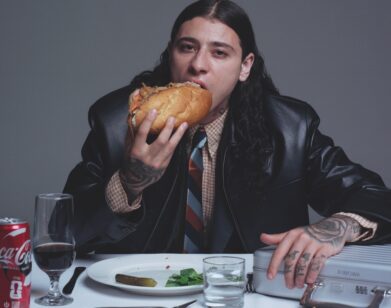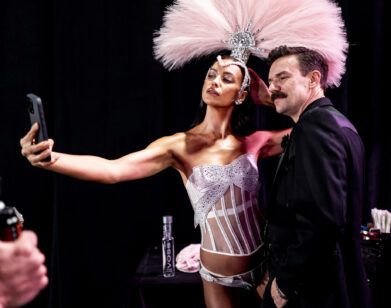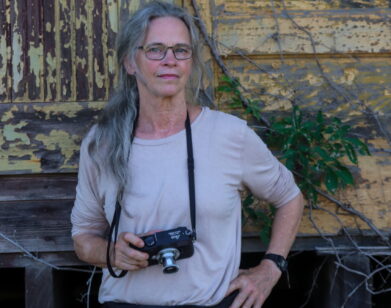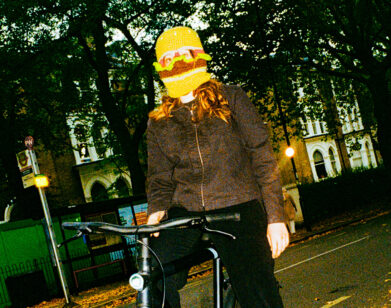LIT!
Liara Roux Tells Stoya About Her New Memoir: Whore of New York

All photos courtesy of Liara Roux.
According to her Wikipedia page, Liara Roux is an American author, a sex worker, an indie porn director, and a sex worker human rights activist. Together, these labels amount to the kind of multi-hyphenate persona that would send the average person reeling, but for those who have read Roux’s 2021 memoir, Whore of New York: A Confession, they only scratch the surface. Roux’s identity remains mercurial, as she plays both the role of narrator and a protagonist who has carefully crafted her personae with clients in mind. Throughout the novella-length memoir, Roux documents her journey from childhood outcast, to alt-lit e-girl, to high-end escort, all while maintaining an alluring distance (we get to know her deeply, but can’t help wanting more) and ineffable empathy for everyone she encounters—including lurid clients and abusive ex-lovers. But her tale isn’t your average redemption story. Rather, Roux aims to portray sex work as work, in all of its chaos and charm. To discuss the complexities of documenting the world’s oldest profession, the writer got on Zoom with fellow author and adult actress Stoya to discuss power imbalances, shifting views on sex work, and using LSD as an emancipatory tool.
———
STOYA: You’re outside. Where are you?
LIARA ROUX: I’m in L.A. I’ve been hiding in Glendale, away from society. Haven’t really told any when I’m here [laughs]. It’s a nice way to get a lot of writing done.
STOYA: I’m going to dive in if that’s okay. What went into your decision to write a memoir?
ROUX: My publisher reached out to me and said that they wanted me to write a memoir. It was something I’d always thought about even before I became a sex worker. I was really interested in playing with the form, especially any chance to subvert confessional expectations. It felt like it was the right time. I think people are starting to talk more about sex work and I wanted to add something to that discussion—something that acknowledged the fun parts of the work, and also talked about the hard stuff in a very balanced way.
STOYA: Your memoir sits outside of the nightmare/paradise dichotomy. We have the Linda Lovelace memoir, her story is very much a cautionary tale, and then Xaviera Hollander’s The Happy Hooker, which was so fluffy and so delightful. Neither are representative of the reality of the job. It’s neither all exploitative, nor all bonbons and Louboutons. I imagine you knew you were walking that line. How did you decide what to include and what to leave out?
ROUX: It’s a really tough line to walk. There’s a lot of pressure from people in the community to not talk about anything bad that happens while you’re on the job. Some people think it can be damaging for the movement, but I think it’s just as damaging to neglect the fact that there is a lot of terrible shit that happens to us. That’s why decriminalization is important. If the work was just fun and easy and great, then decriminalization probably wouldn’t even matter. The reality is we get a lot of shit from the police, and because we’re criminalized we also get additional trouble from clients, from society, from landlords, from banks, from doctors, and everyone in between.
STOYA: As you were listing these things, my memory was like, “Yeah, that time with the bank and yeah, the time with the landlord and, oh, that time with the doctor and that other time with the doctor.” [laughs]
ROUX: Once I went to a neurologist just to get a [prescription] refill. The appointment ended up lasting an hour because she would not stop lecturing me about how I should be on PrEP to, “Be more safe.” I was like, “I’m already on prep, I already use condoms.” I don’t think it’s bad if you ever test positive for an STD, but I’ve literally fucked over a thousand people and have not managed to contract anything so far. So as far as that goes, like I’m being just about as safe as you can be. It was really wild.
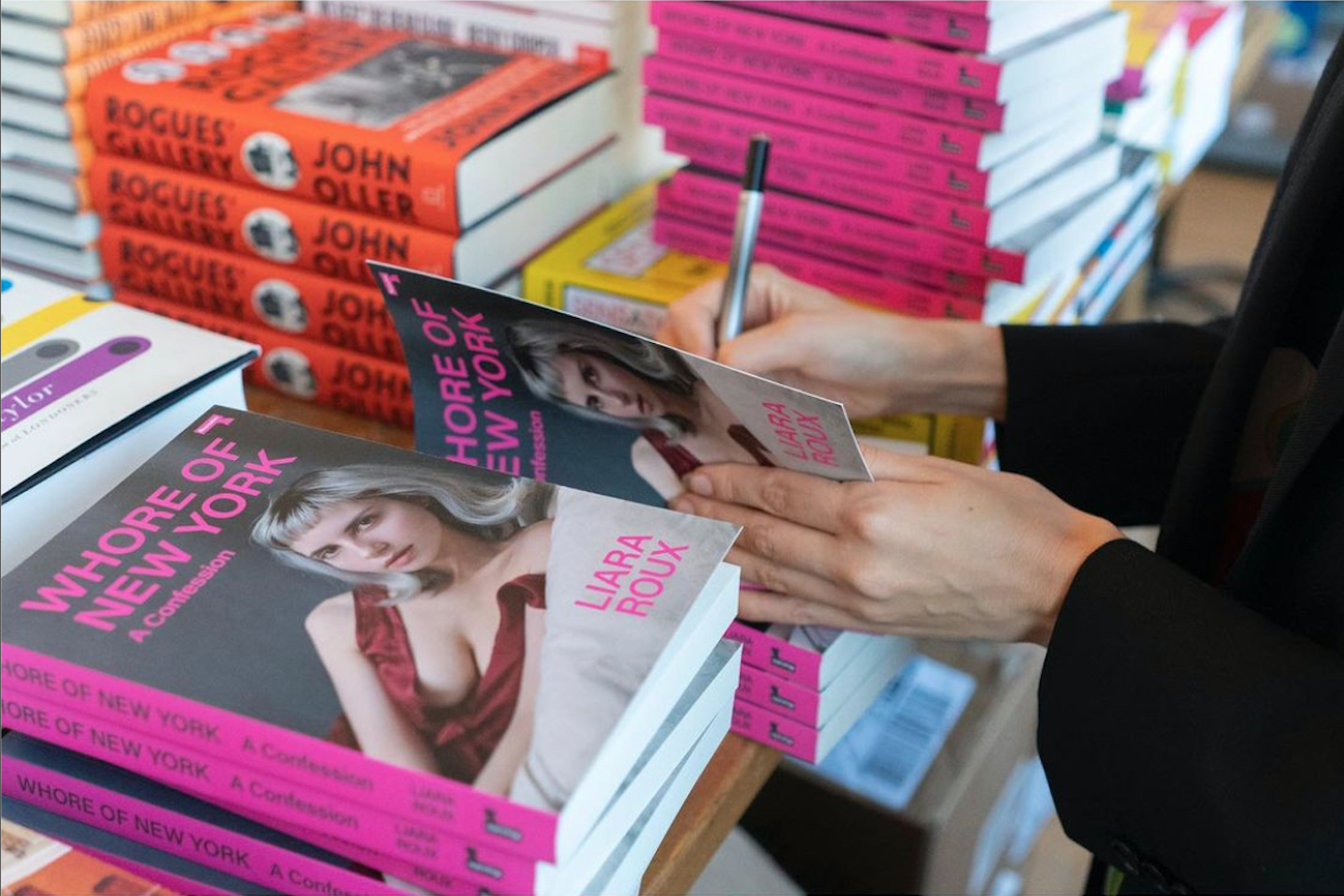
STOYA: In one part of the book you specifically mention something that you were keeping private. I’m curious if that is what you mean by, “Subverting the confessional memoir.”
ROUX: Yeah. I think women face a lot of pressure, especially when writing memoirs, to make a laundry list of all the trauma they’ve ever been through and everything it made them feel. I wanted to write something that left people with the impression that they weren’t getting all of that, just because I think people feel so entitled to it. There’s an expectation that men can carefully craft their autobiographies and leave out the parts where they’re binge drinking and having a bunch of sex with strangers. But women, if they have similar periods of emotional distress in their life, are always expected to include it as this big centerpiece.
STOYA: We touched on it a little bit earlier, how sex work and the discourse around it in the media and the general public has shifted in the past few years. Where do you think it’s going?
ROUX: I got a lot of hate mail in the past. But since I published the book I can’t think of the last time someone sent something hateful to my inbox. Maybe people are like, “I’m not gonna give her what she wants. She’s already calling herself a whore.”
I think people’s opinions are changing. My mom and I have been talking about sex work and her opinions on it have shifted radically. My friend gave [the book] to his sister who’s a pastor in the deep south and she really liked it and really connected with it, and she’s really conservative. I think people are starting to acknowledge that sex workers are everywhere. It’s like gay people. At first, it was easy to demonize them and be like, “They’re these crazy weird perverts who are super into hardcore BDSM and freaky shit.” Because those were the only people who were really daring to be visible. Now people are eye rolling like, “Why do you need to make a big deal about coming out?” It doesn’t need to be this huge ordeal anymore. I think sex work is starting to become like that, where you have people like FKA twigs or Rachel Kushner casually talking about how they used to work in a strip club. Before that it was something that could have absolutely destroyed or derailed their careers.
STOYA: I’m struck by the number of similarities in our lives but one place where we differ wildly is that for me, there is no character. When people have criticisms it lands a lot harder. Is there a process that you go through to get into that character?
ROUX: It makes it so much easier to deal with criticism. I actually have this playlist that I used to always listen to before sessions. I also had a perfume that I only wore while I was working. The wardrobe was pretty different as well. Liara was this whole, very separate character who I would get into the headspace of, and then leave behind.
STOYA: I’m curious about the leaving behind part. Is there a ritual for that?
ROUX: My drama teacher in high school taught me the Meisner method. You pull up emotions by imagining a fictional scenario and then go into the scene and act it all out. Afterwards you do a lot of heavy breathing and shake it out. I would usually take a bath or do some kind of grounding ritual or exercise and come back into my body, which felt like really important self care work.

STOYA: Throughout the story, whether it’s you with Mistress Iris, or you with your ex-wife, or any of these like smaller relationships, power and power imbalances seem to be the running theme.
ROUX: Power dynamics have always been super fascinating to me and I think it is because of stuff that happened in my childhood. Maybe it’s because I’m a Scorpio, but I think people who are able to have friendships and relationships where they talk frankly about power dynamics and do what they can to make everyone feel comfortable and respected and safe are really impressive. So many people go through life doing these petty, power-trippy things. As I’ve grown older, it’s been really important to only really spend time with people who are self-confident and composed enough that they can keep the button pushing and power tripping to a minimum.
STOYA: Power is something that as a nation we’re only collectively talked about in the past few years—and when I say we I only mean half the country. Part of that is racial justice. Part of that is gender justice. Throughout the “me too” movement, I feel like many people have been trying to articulate how insidious abuse of power in intimate, romantic relationships is. You put your boots on and waited right into that. It’s a core part of your memoir.
ROUX: It would’ve been really easy for me to write about that relationship in a super black and white way. There’s a lot that I left out that could have made me more sympathetic to readers. And there’s a lot that I left out that could have made me look negative in the eyes of readers. I got a lot of criticism for that part of the book being vague, but for me the specifics weren’t that important. Maybe someone else would’ve been fine with the relationship that I was in. I was contributing to it a lot and being very controlling in my own way by staying. And there was this power dynamic of age and everything, but at the end of the day, by trying to demand that my partner change—I had so much more agency in that relationship than I realized. I’m not saying that people who stay should feel guilty about staying in relationships. I don’t even feel guilty about staying. It’s such a fraught and complicated issue. I wanted it to feel gray like, “I love this person and they hurt me and they took advantage of me and I let them, and that’s awful.”
STOYA: You get the sense that this is an unfortunate occurrence that is complex and sticky and difficult. I think you did a really good job. Sex work and toxic relationships are difficult to write about and not something we talk about often. So is LSD and sex work…
ROUX: I think psychedelics, depending on how they’re used, can counter these dichotomies. The fact that I was using psychedelics a lot right before I started doing sex work and as I was doing sex work probably made me think about it in a different way than a lot of people might have. I started my career in the Bay Area, which has a long history of radical sex workers doing a hell of a lot of psychedelics [laughs]. It’s hard to think of sex work as this great evil when you’re doing a lot of mind bending drugs.

